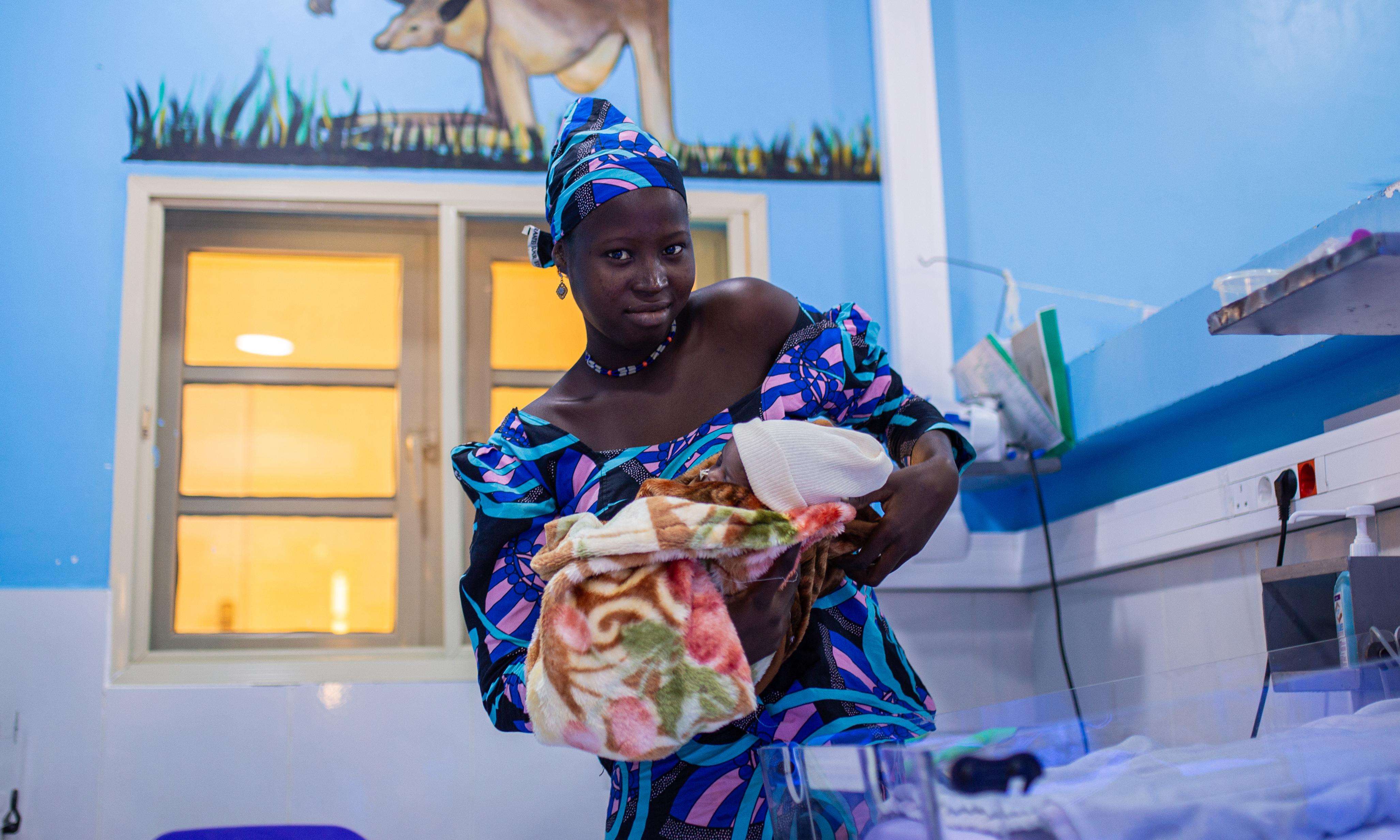After South Sudan and Chad, Nigeria has the third-highest maternal mortality rate in the world, with an average of more than 1,000 maternal deaths per 100,000 live births each year.
Jahun General Hospital is located in Jigawa state in the north of Nigeria, a region with far higher mortality rates than even the already alarming country average. The most significant factor contributing to the high maternal mortality rate is limited access to prenatal care and delivery care for complications in childbirth, which occur frequently.
To help prevent maternal deaths, Doctors Without Borders/Médecins Sans Frontières (MSF) is collaborating with the Jigawa state Ministry of Health to provide comprehensive emergency obstetrics and newborn care, as well as fistula care at Jahun Hospital, where our teams have assisted 90,000 deliveries since commencing services in 2008. Last year, MSF teams assisted 15,754 deliveries, performed 1,911 Cesarean sections, and completed 43,785 prenatal consultations. Yet it is still a drop in the ocean when it comes to the needs of women in Jigawa state.
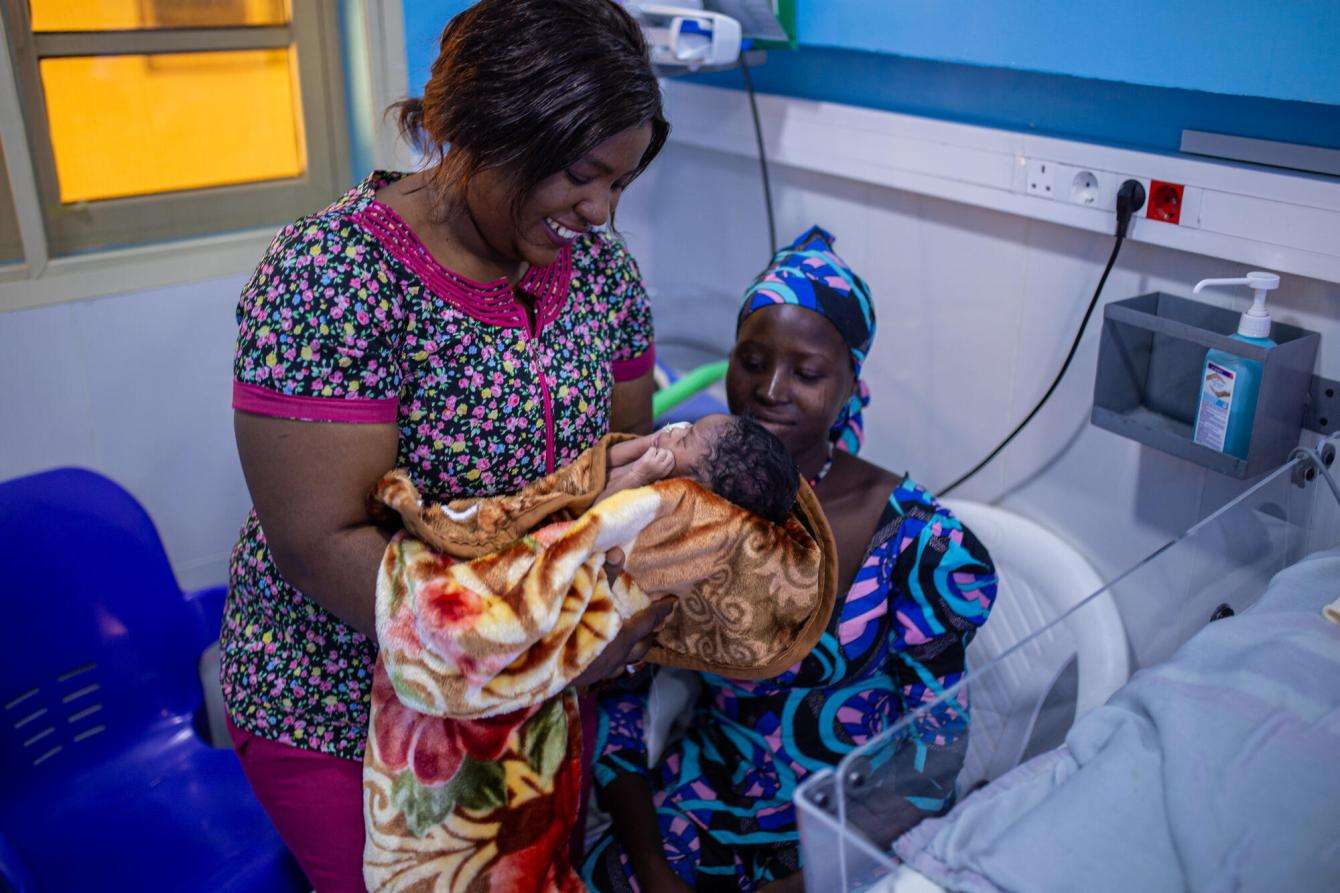
“We see a lot of women with serious complications,” said Unity Unuebuke, an MSF nurse activity manager who has been working at Jahun General Hospital for more than 10 years. “The most common ones [here] are anemia, hemorrhage, and eclampsia.”
Worldwide, nearly 75 percent of maternal deaths are caused by severe bleeding, infections, high blood pressure during pregnancy, complications in delivery, and unsafe abortion, according to the World Health Organization.
At Jahun Hospital, the high number of patients means the maternity wards are often fully occupied, if not over capacity. “We regularly have up to two women sharing a bed, and depending on the type of complications we see, things can escalate very quickly,” said Enuebuke.
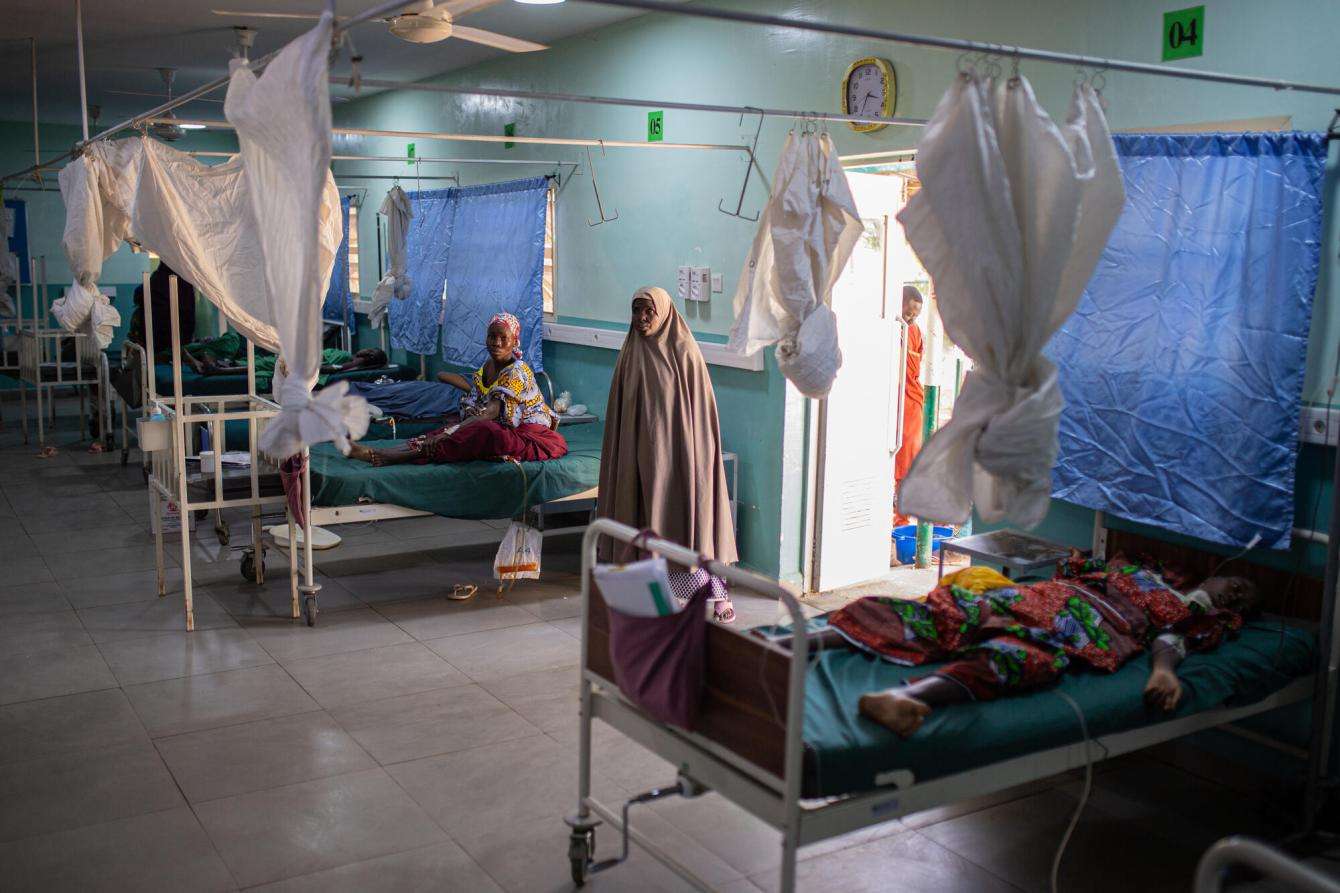
Health facilities should not only be functional, but also affordable
When Ramatu delivered her first baby at Jahun Hospital, the mother of two suffered life-threatening eclampsia—seizures due to high blood pressure. She had traveled a considerable distance to get there. “I live five hours away,” Ramatu explained. “There is no hospital where I live, and the closest one is not open at night.”
In Jigawa state, many of the estimated 749 primary health care centers do not have the drugs, personnel, and medical equipment to serve the thousands of women of childbearing age. Despite efforts from public health authorities, the current health care infrastructure does not come close to meeting the needs of the community.
It is not enough that health care facilities are functioning—they must also be affordable. The economic reality in this region, which has worsened under soaring inflation rates, makes it difficult for people to afford hospital fees, drugs, or even transportation to health facilities.
This dire situation leaves pregnant women with limited options. Many will give birth at home with the help of more affordable traditional birth attendants, increasing the risk of complications. If complications arise, they will have to embark on a treacherous journey to try to reach a facility. Up to about 80 percent of deliveries occur at home.
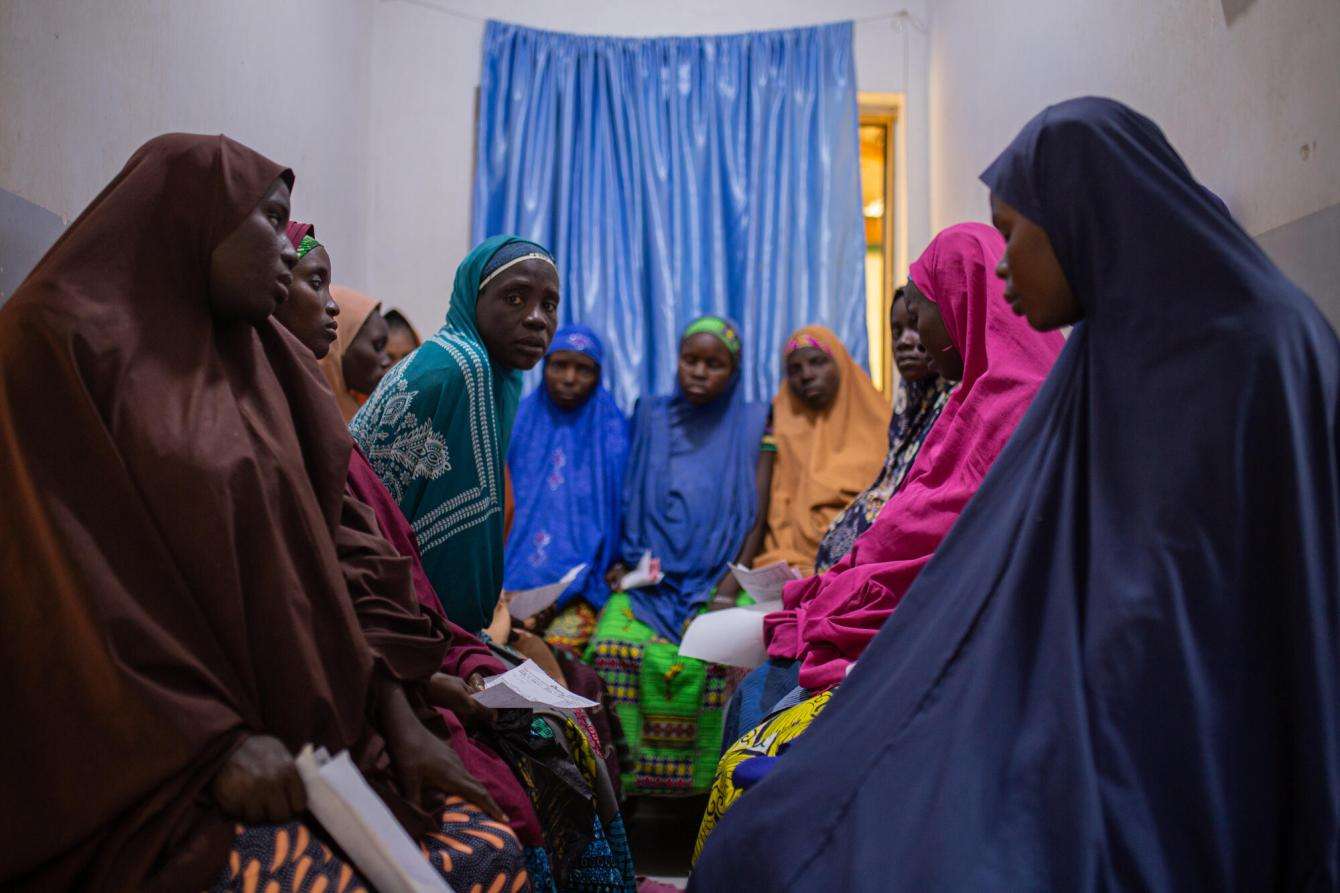
Hospitalization when complications arise
Complications can occur without warning, and the mother’s and baby’s survival can hinge on how prepared the birth attendant is.“Most times, family members don’t bring the mother to the hospital until they see that the baby is not coming out and the mother is having seizures,” said Unuebuke.
Khadijah, a traditional birth attendant in the Aujara community of Jigawa state, understands the value of hospital care when she can’t manage a complication—but she has seen women hesitate. “Some women take my advice when I say they should go to the hospital, while [others] refuse to go to the hospital because they say they are used to giving birth at home.”
Zainab
“Hafsat [my sister-in-law] started labor on a Monday by 7:30 a.m. ... Around 8 a.m. the next day, she gave birth. When I went to see her, she was not in her senses. Because of that, we were referred to the General Hospital in Jahun. She was put in an ambulance. When we returned home [after she was discharged] it looked like she was fine. On a Monday, we were told she wasn’t feeling well. At home, she was acting strangely, till she eventually passed away.”
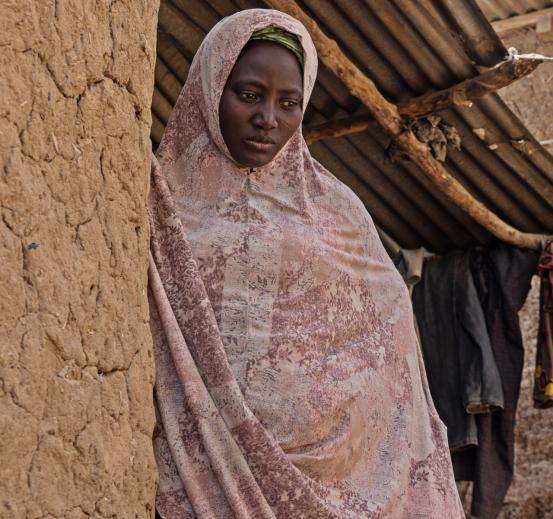
In many communities in Jigawa state, pregnant women often require permission from their husband or mother-in-law to go to the hospital. Many women get married very young, when they may not be fully informed about pregnancy and are not physically ready to carry a child. For some, “it is their husbands who prevent them from going to the hospital,” said Khadijah. “Some men don’t see the relevance of prenatal care, while others don’t want another man to treat their wives.”
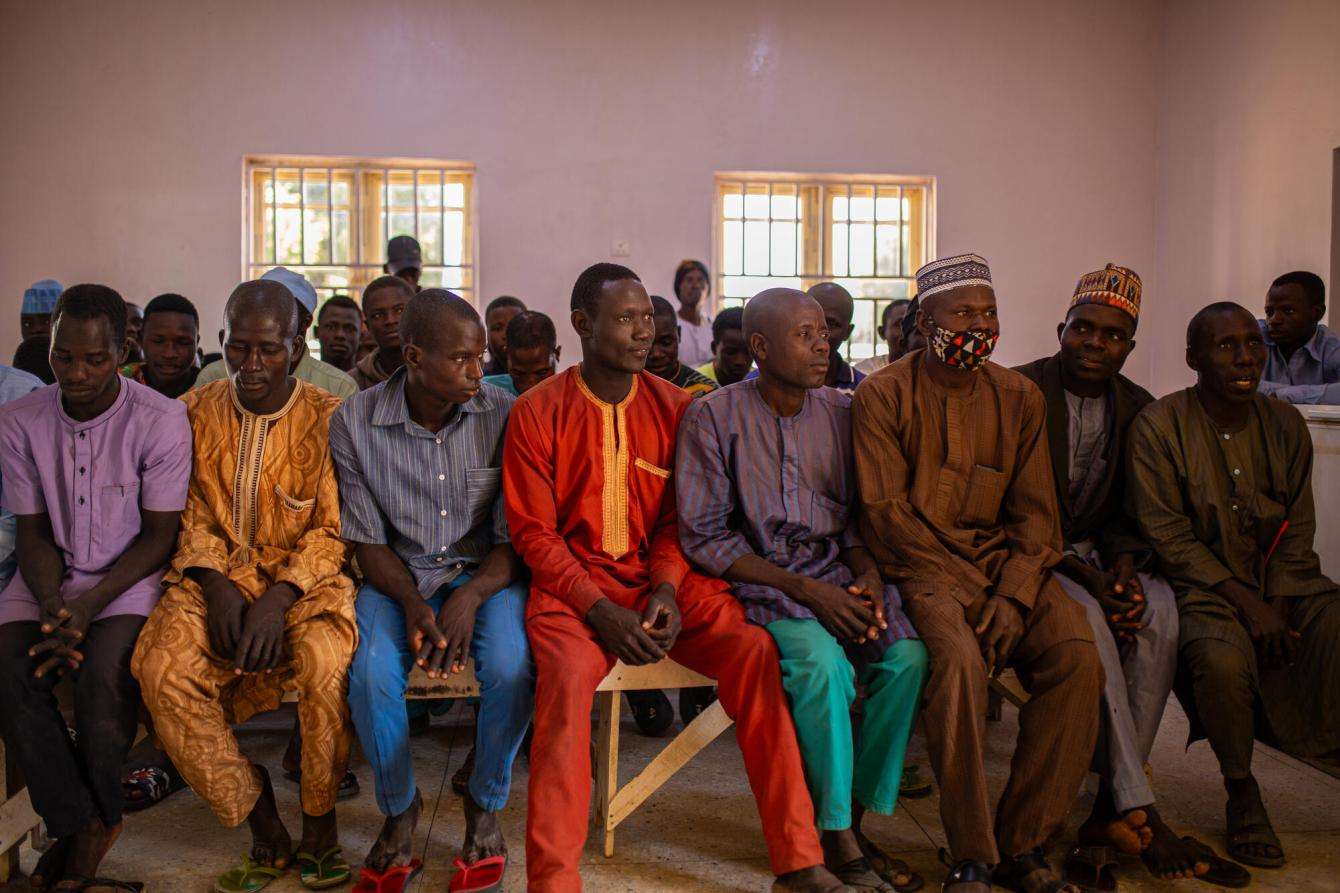
What needs to be done?
To tackle maternal mortality, a multitude of factors must be addressed. State authorities and international organizations must scale up their activities and increase funding for health care in the region, ensuring that budget allocations for primary health care centers are properly utilized and that thorough planning and strict implementation processes are in place.
Primary health care facilities, which are often the first point where pregnant women seek health care, need to be supplied with trained personnel, equipment, and resources to manage childbirth-related complications.
“Eighty two percent of the cases we receive at Jahun General Hospital are complicated cases that could have been prevented at the primary health care level,” said Abdulwahab Mohamed, MSF medical coordinator. “Women, especially those of childbearing age, also have to be informed about their health and wellbeing through health empowerment programs.”
Pregnant women must be encouraged to seek prenatal care so they can be informed about their pregnancy journey and what to expect. Efforts must be made to mitigate cultural practices that prevent women from seeking care in medical facilities. Women should have agency and freedom to make decisions about their health.
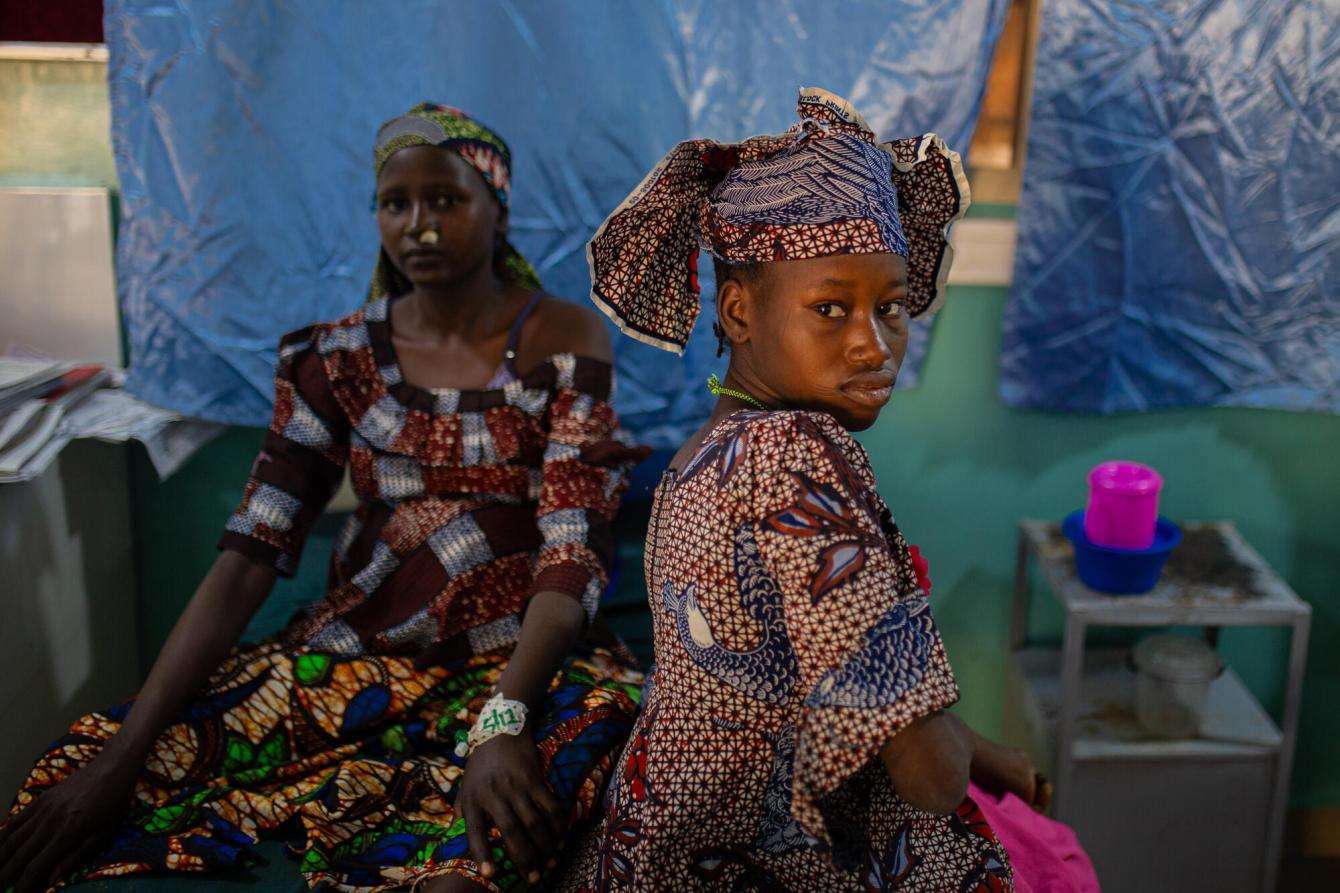
Our work in Jigawa state
MSF supports the Jigawa state Ministry of Health in providing comprehensive emergency obstetrics and newborn care. Our support started with vesicovaginal fistula repair in 2008, and the project evolved into a 161-bed facility to care for pregnant women and newborns experiencing complications. MSF teams also provide maternal and neonatal health care in Kano, Benue, Cross River, and Zamfara states, and will open a large maternity hospital in Maiduguri in June 2024.
